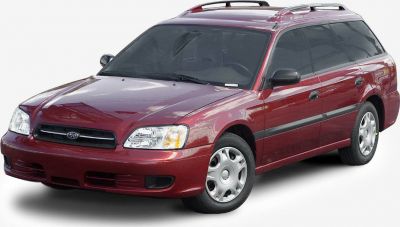 1962 GAZ 22B Dimensions, Size & Specs
1962 GAZ 22B Dimensions, Size & Specs
Measurements of the 1962 GAZ 22B, engineered for optimal performance and comfort
| Dimensions | |
|---|---|
| Length: | 4810 mm189.4 in15.8 ft |
| Width: | 1800 mm70.9 in5.9 ft |
| Height: | 1620 mm63.8 in5.3 ft |
| Weight Specifications | |
| Curb Weight: | 1545 kg3406 lbs |
| Tire Specifications | |
| Tire Size: |
|
The GAZ 22B, produced between 1962 and 1970, is a legendary Soviet-era station wagon developed by Gorky Automobile Plant (GAZ). This model represents the second generation of the GAZ 22 series and was widely used both as a family car and for utility purposes due to its robustness and practical design. Measuring 4810 mm (189.4 inches) in length, 1800 mm (70.9 inches) in width, and 1620 mm (63.8 inches) in height, the GAZ 22B offers a spacious interior suitable for passengers and cargo alike. It features a curb weight of 1545 kg (3407 lbs), highlighting its solid build quality compared to other vehicles of the 1960s. The tire size fitted on this station wagon is P215/75 R15, providing a balance between comfort and handling. Its overall dimensions make it larger than many contemporary Western compacts but competitive within the robust vehicle category of its time. The car's design emphasized durability and versatility, embodying the practical automotive ethos of mid-20th century Soviet manufacturing. Collectors and enthusiasts today value the GAZ 22B for its historical significance and unique presence among classic station wagons.
Discover the standout features that make the 1962 GAZ 22B a leader in its class
Have a question? Please check our knowledgebase first.
The GAZ-22B station wagon, produced from 1962 to 1970, measures approximately 4810 mm (189.4 inches) in length, 1800 mm (70.9 inches) in width, and stands 1620 mm (63.8 inches) tall. These dimensions reflect its sturdy and practical design, suitable for mid-20th century utility and family use. The size balance provided sufficient interior space and cargo capacity, characteristic of station wagons in that era.
The GAZ-22B has a curb weight of 1545 kg (approximately 3407 pounds). This weight reflects the vehicle's robust construction and the materials used during the 1960s. The relatively moderate mass helps provide stability and durability, but it also means that the vehicle may have modest acceleration and fuel economy by today’s standards. Its weight complements the vehicle’s role as a reliable station wagon designed for utility and comfort rather than sporty performance.
The GAZ-22B, with its length of 4810 mm (189.4 inches), width of 1800 mm (70.9 inches), and height of 1620 mm (63.8 inches), fits comfortably into a standard garage. Typical single-car garages provide dimensions of about 5400 mm (213 inches) in length and 3000 mm (118 inches) in width, so the GAZ-22B’s size allows for enough clearance space for easy parking and maneuvering. Its height is well under standard garage door clearances typically around 2030 mm (80 inches).
At 1800 mm (70.9 inches) wide, the GAZ-22B is similar in width to many station wagons of its time, which commonly ranged from 1750 mm to 1850 mm (approximately 68.9 to 72.8 inches). This width strikes a balance to allow comfortable seating for passengers while maintaining manageable dimensions for urban driving and parking. The width supports a spacious cabin without compromising maneuverability.
The GAZ-22B uses tires sized P215/75 R15. This tire specification indicates a tire width of 215 mm, an aspect ratio (sidewall height) at 75% of the tire width, and a 15-inch diameter rim. These tires typically offer a comfortable ride with good shock absorption, which is essential for a family or utility station wagon. They balance durability and comfort, suitable for the varying road conditions the GAZ-22B would have encountered.
The GAZ-22B, measuring 4810 mm (189.4 inches) in length, represents an evolutionary size upgrade over its predecessor, which was generally shorter and less spacious. This increase in length allowed for more interior room and cargo capacity, making it more practical for family transport and commercial use. The width and height remain relatively consistent but the overall size enhancements demonstrate improvements aimed at comfort and utility.
With a height of 1620 mm (63.8 inches), the GAZ-22B offers decent interior headroom for passengers, typical of station wagons of its era focused on comfort and practicality. The somewhat taller profile also improves visibility and accessibility. Externally, this height gives the vehicle a balanced presence—not too tall to affect aerodynamics excessively but tall enough to accommodate a spacious cabin and ample cargo space.
Compared to contemporary station wagons from the 1960s, the GAZ-22B's dimensions—4810 mm (189.4 inches) length, 1800 mm (70.9 inches) width, and 1620 mm (63.8 inches) height—place it within the average range. Many similar vehicles from European and American manufacturers exhibited comparable dimensions, designed to optimize passenger comfort while maintaining maneuverability in urban environments. The GAZ-22B stands out for its robust Soviet-era build but aligns closely with global station wagon size norms of that period.
The GAZ-22B is a classic station wagon that emphasizes practicality and durability—reflecting the Soviet automotive design philosophy of the 1960s. It features a spacious rear cargo area with accessible tailgate space, ample seating for families or work crews, and rugged construction to endure a variety of road conditions. Its design focuses on functionality rather than luxury, equipped to serve as a reliable multi-purpose vehicle in urban and rural settings throughout its production from 1962 to 1970.
The GAZ-22B was primarily designed as a utilitarian station wagon suitable for both family transportation and commercial use. It was popular among state organizations, government services, and private users in the Soviet Union. The vehicle's durable construction, practical dimensions, and cargo space made it versatile for daily use, from carrying passengers to transporting goods, reflecting its role as a dependable workhorse during the 1960s.
Discover similar sized cars.

| Model Year: | 2020 |
|---|---|
| Length: | 4859-4870 mm191.3-191.7 in |
| Width: | 2067-2083 mm81.4-82.0 in |
| Height: | 1670-1699 mm65.7-66.9 in |

| Model Year: | 2013 |
|---|---|
| Length: | 4790 mm188.6 in |
| Width: | 1820 mm71.7 in |
| Height: | 1605 mm63.2 in |

| Model Year: | 2010 |
|---|---|
| Length: | 4775 mm188.0 in |
| Width: | 1820 mm71.7 in |
| Height: | 1605 mm63.2 in |

| Model Year: | 2000 |
|---|---|
| Length: | 4730 mm186.2 in |
| Width: | 1770 mm69.7 in |
| Height: | 1545 mm60.8 in |

| Production: | 2001-2003 |
|---|---|
| Model Year: | 2001 |
| Length: | 4760 mm187.4 in |
| Width: | 1745 mm68.7 in |
| Height: | 1525 mm60.0 in |
